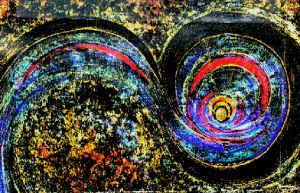Excerpted from Francis Cholle’s The Intuitive Compass, Jossey-Bass
In my seminars at L’Oréal, SAP, and other companies, I often recount Edgar Allan Poe’s “A Descent into the Maelstrom,” a story that beautifully illustrates this aspect of chaos theory. It describes how three brothers go out on their fishing boat only to be caught in “the most terrible hurricane that ever came out of the heavens.” The storm drives their boat into a powerful whirlpool, the maelstrom of the title. One brother is thrown over board into the whirlpool and quickly carried under. Another brother goes mad with terror. But the third brother is suddenly struck by the awesome beauty of the maelstrom. With an inner calm he notices that some objects are being spun around at the top of the whirlpool rather than sucked into it. Unable to convey this to his mad brother, he submits himself to the sea, cling onto a barrel, and rides the maelstrom until it subsides and he is rescued. In the meantime the mad brother, because he fights the chaos rather than submitting to it, drowns when their boat spirals down to the depths. Although the experience turns the surviving brother’s hair white and makes him look older that his age, it give him a deep insight into the working of nature, and an enduring serenity.
I always remind participants that Poe’s story shows that the way each one of us chooses to handle confusion and chaos may have a huge impact on the final outcome for everybody. Each brother acted his own way and by doing so chose his own final outcome. In Poe’s story, when the third brother decides, in spite of his fear, to give up the fight with the maelstrom, he actually facilitates the organizing principle creates all the marvels that have evolved in nature. In our minds, it brings reason, feeling, and instinct into balance, if only we have the wisdom to trust it and stop trying to override it.
